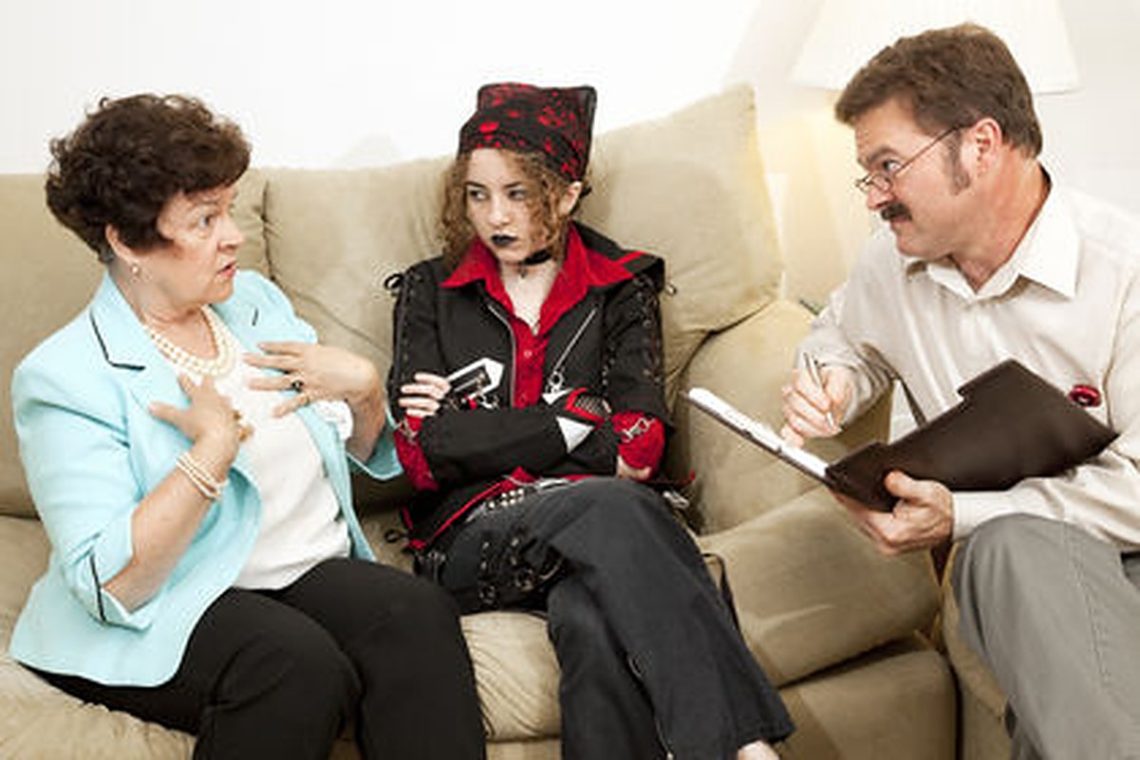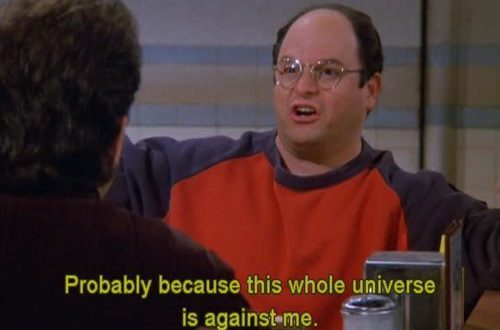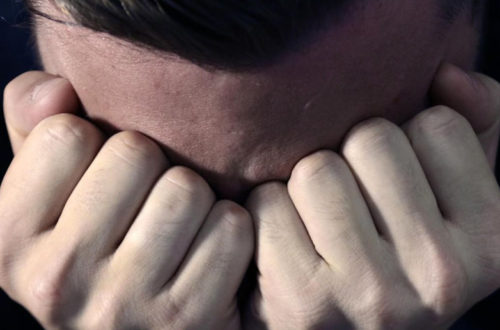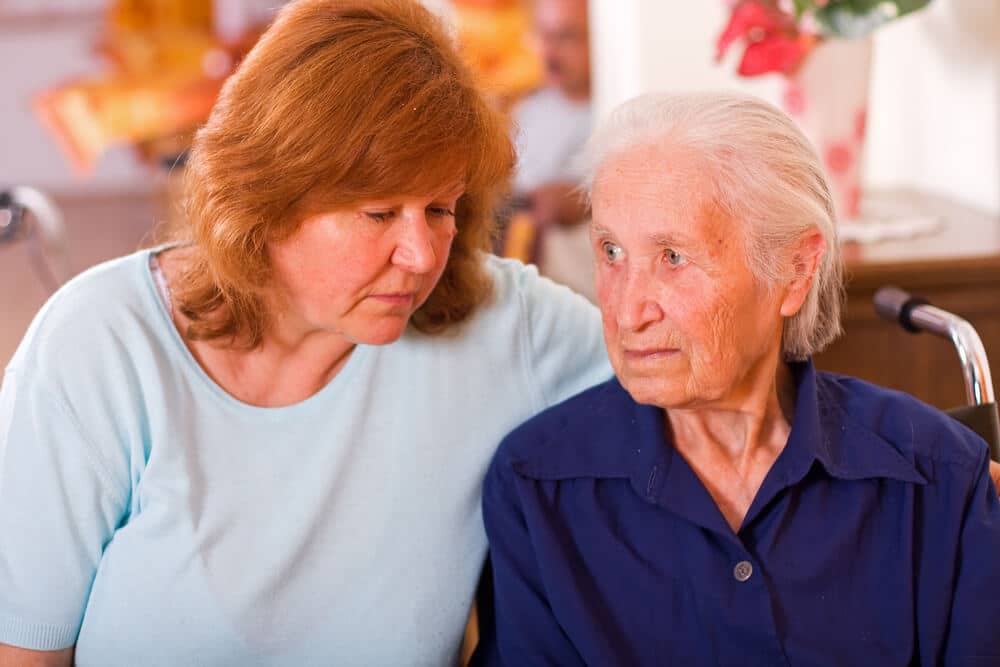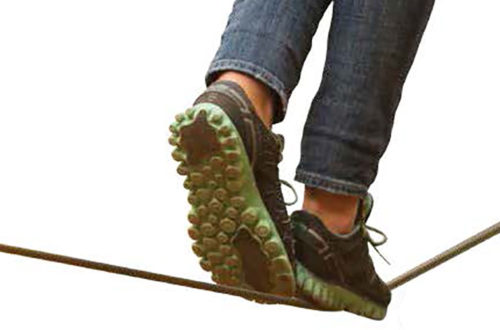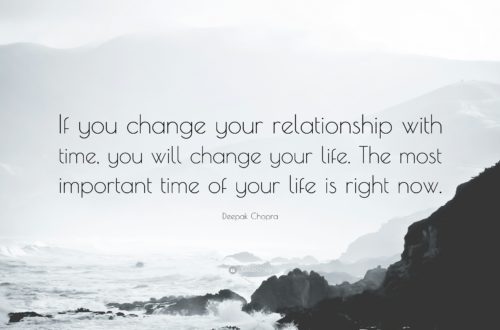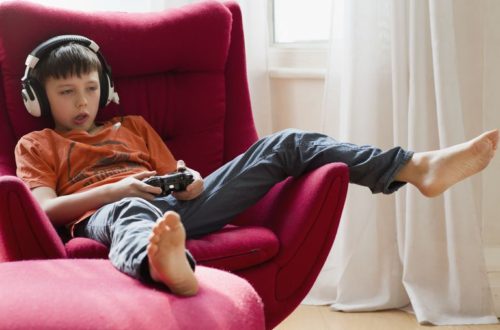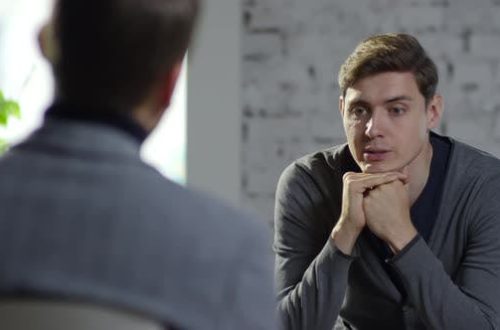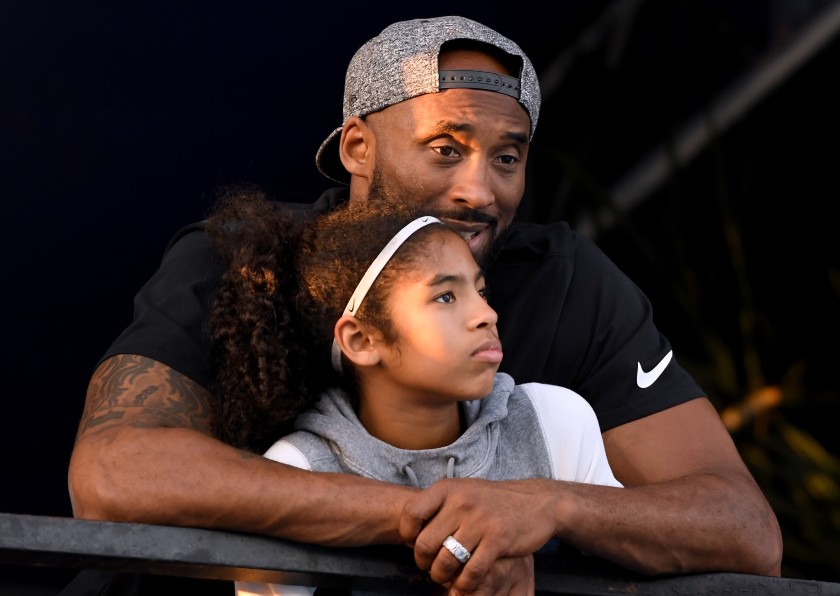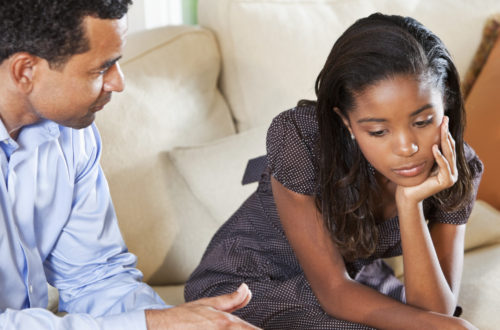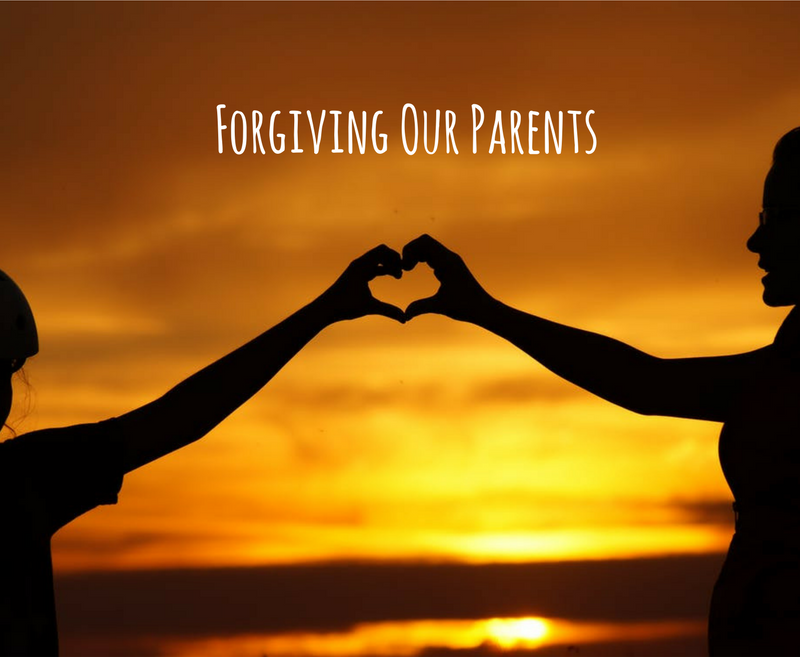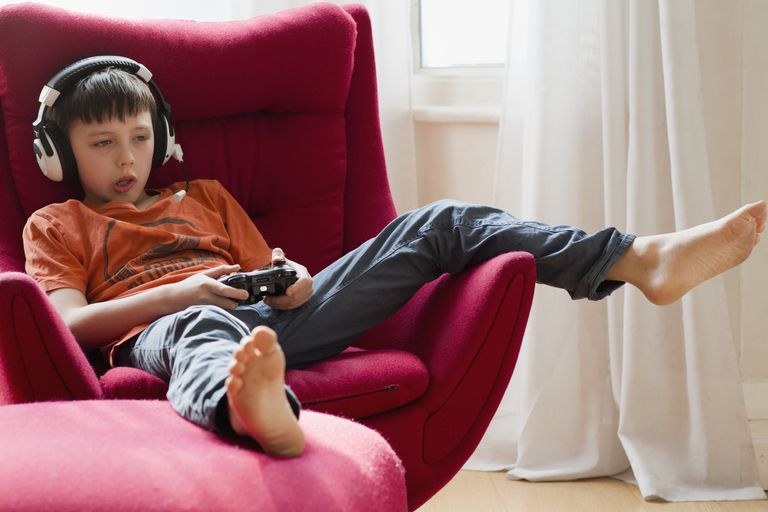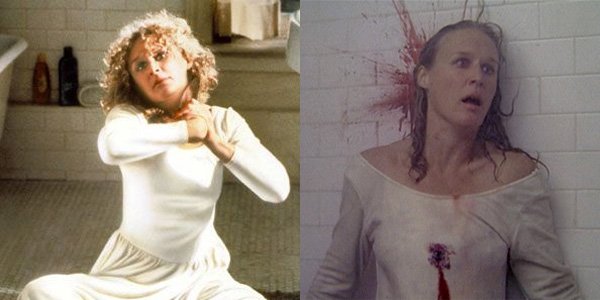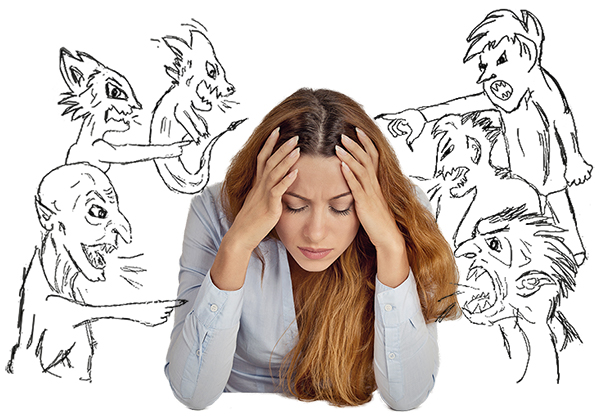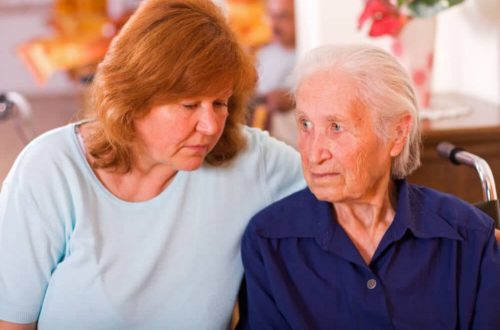Suppose you’ve become concerned about some of your child’s behaviors, and you decide it’s time they see a therapist. Maybe your son is “gaming” too much, and his grades are dipping. Perhaps your daughter isolates herself in her room, and rejects social opportunities. Your first response is to tell your son what he should be doing, or insist your daughter talks to you. As a parent, it makes sense that you would become anxious to the point of agitation. Parents are always terrified about the short and long term impacts of problematic behaviors. Your child ignores your efforts, which causes you to amp up your pursuit of solutions, only to…
-
-
Excerpt from the Therapy Room: Stephen and His Anxious Focus
“I don’t understand what she’s doing with him. He doesn’t work, and he has zero motivation”! Stephen had never spoken about his “baby sister”, Alicia, with such urgency. In past sessions, He’d proudly referenced their shared sardonic sense of humor, and bragged about her keen common sense. This differed from his relationship with his older brother, Bill, which he characterized as critical and competitive. Stephen and Bill were connected only by fandom of the same football team, and affinity for fatherhood. Stephen’s distance from Bill made Alicia more of a focal point in his life, which shed some light on his exasperation with her new boyfriend, the “doofus.” At first,…
-
How to Reset the Work/Home Boundary During COVID-19
A long time ago, home was a place of calm. It was a harbor from stress, a fountain of rejuvenation, a place of play after a day of work. When sheltering began three months ago, my home became a mish mash of multiple life domains. It is now a space shared with clients; an office where I write notes and treatment plans; a venue for Zoom staff meetings and intern supervisions. COVID-19 has destroyed the notion of work/life balance, and judging from the multitude of tales I’ve been told, we all seem to be experiencing the same blurring of boundaries. At first, there was novelty in resting on my couch…
-
Allowing Elderly Loved Ones to Express Anxiety During COVID-19
We are living in a historical time during which every news story updates us on the prevalence and mortality rate of the Corona Virus (COVID-19), emotional response ranging from apathy among young spring breakers who believe themselves invincible, to older people whose anxiety has morphed into Obsessive Compulsive Disorder. Then there is the population most at risk of fatality; our oldest loved ones, many of whom have preexisting conditions known to increase COVID-19 lethality. Many seniors are sequestered from family, and afraid while others live with family, and are still afraid. They are experiencing intensified fear of death, being a burden to loved ones, and all the unknowns about the…
-
Five Keys to Calm During COVID-19
As if anxiety in our country isn’t high enough, a virus that spreads like brush fire is threatening our health, social connections, and possibly our livelihoods. Times like these are sure to amp up our tendency toward “what if?” thinking, and as we all know, the anxious mind never allows for a “what if?” with a happy ending. While I would never advocate for apathy in a time of global pandemic, absolute panic is not the way to go either. Panic leads to rash decisions, and for parents, the certainty of making our children feel as if the world is not safe. Here are some thoughts on how to keep…
-
Self Care Is Not Just About “Self”.
In the eight months since I’ve turned the “the big 5-0”, several people have asked me how 50 is treating me. I responded to the first few inquiries with assurances it was treating me “fine”, and that I was happy to have achieved half a century of life. As I thought more about this, my answer to the next few people was more honest and insightful. I suddenly felt compelled to acknowledge that while 50 has done me no harm, I have been nothing short of abusive to it. I am fortunate to have reached an age characterized by nearing the mountain top where I will prepare for twilight years, and…
-
It’s Not that Kobe Is More Important…
Few celebrity deaths shocked us more than the recent tragic death of Lakers legend, Kobe Bryant. From the moment my brother texted me he had died, I was glued to news outlets, and my Twitter feed, waiting for every excruciating detail to be revealed; all of this while wishing it was just a horrible dream. It wasn’t, of course, and the nightmare grew more horrendous when it was revealed his daughter, Gianna, was on that helicopter with him. As tributes to Bryant posted to social media accounts, grief about what would have been Gianna’s celebrated Women’s National Basketball Association (WNBA) career flooded feeds as well. As news outlets continued their…
-
Our Parents’ “Mistakes” Through a Wider Lens
For many of us, by the time we reach adulthood we’ve harbored blame toward at least one parent for wounds inflicted upon us in childhood. We incurred these wounds at a time when we most needed the world to be a safe place, and we were relied on our parents to provide that safety. Divorce, infidelity, withholding of warmth, or other trauma, rocks our foundation, and leads to resentment with long lasting effects. Several of my clients have divulged grudges against their parents, and are unwilling to let them go. Unfortunately, these grudges impact current relationships, as they are often used as shields to protect from risk of additional emotional…
-
When “Gaming” Becomes an Addiction
The moment I first held an Atari 2600 controller at a friend’s home in 1981, I was captivated by the possibility of in-home gaming, not having to “put my quarter up” and wait my turn, or ask my financially strapped mother for said quarter. Times were tight, and asking for quarters compromised my mom, who hated saying “no”, but often needed to out of necessity. That year my parents came through with a 2600 of my own for Christmas, and my life changed. Time spent gaming has increased in correlation to evolving technology to the extent we are now at the point where the World Health Organization (WHO) has included…
-
Exorcising the Negative Voice Within
The Negative Inner Critic Need Not Take Up Permanent Residence Inside of Us
